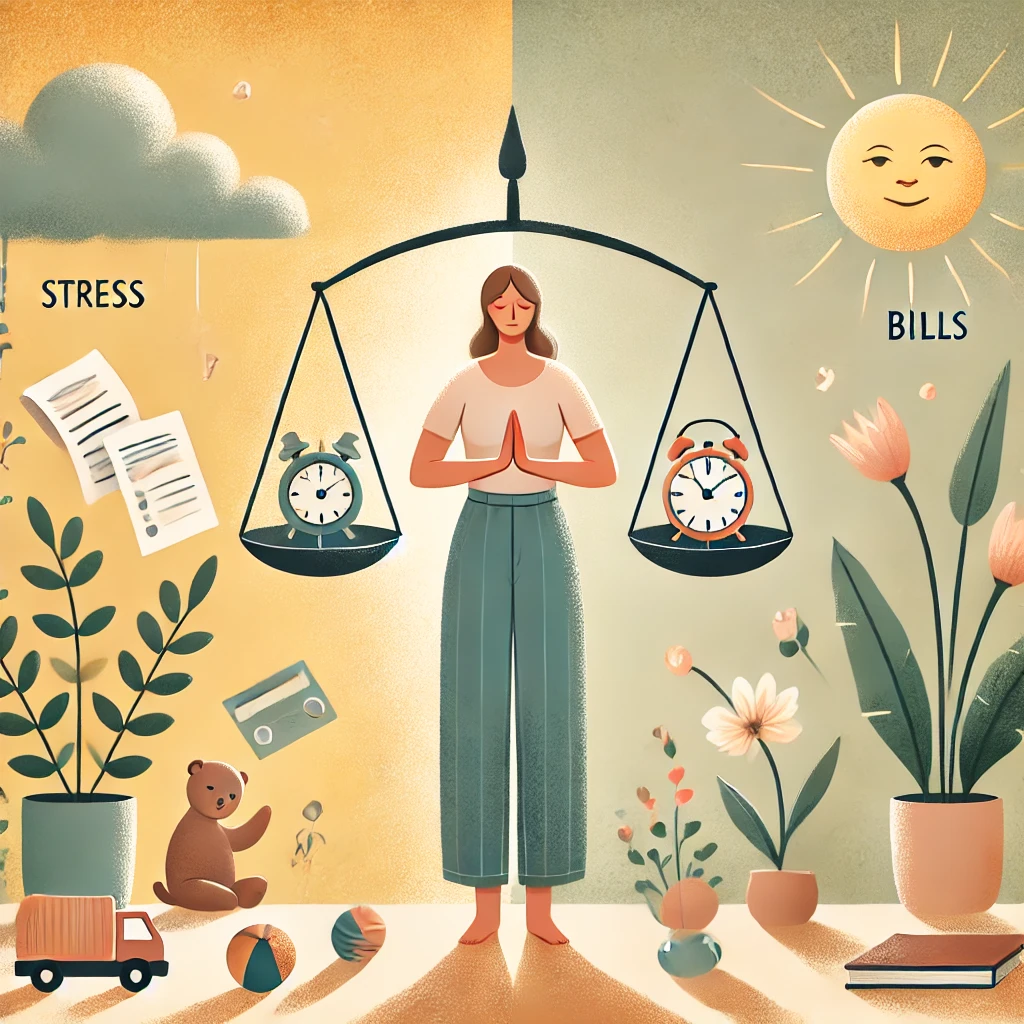What is toxic positivity?
Toxic positivity is positivity taken to such an extreme that it causes us to deny reality – our internal emotional reality, the feelings and experiences of others, or just the facts in front of us.
Have you ever felt like your feelings are wrong, or that you “should” feel differently about a situation? I need to stop feeling upset when my daughter constantly wants my attention. I love her so much, why can’t I just be happy to be around her?
Or maybe your friends and family insist on “looking at the bright side” to the point you feel blinded by their positivity. You might think it’s hard, but you’ll miss feeling like this once they grow up!
And our society’s ideas about life and parenthood can feel suffocating when you’re struggling. Kids are a blessing, you should feel thankful for motherhood.
None of these statements is categorically false. We do love our kids, and want to appreciate time spent together. They are a blessing and often a wonderful part of our lives. The problem is when positivity is used as a tool to erase struggles and fears, and shut people down
Impacts of toxic positivity
You may be wondering – why is it a problem to shut down struggles and fears? None of us wants to be afraid, or to suffer. What’s the problem with turning a bad experience into something good?
The problem is that we can’t create good feelings by force, and attempting to do so is harmful to our mental health. As therapist Whitney Goodman explains in her book Toxic Positivity, using too much positivity leads to emotional suppression. And the effects of emotional suppression include “worsened mood, negative feelings about social interactions, continued negative emotions, and even diminished positive emotions.” Emotional suppression also “causes physical stress on the body” including “impact [on] blood pressure” and “increases the risk for diabetes and heart disease.”
When we try to force ourselves to be positive, and thus must deny the rest of our emotions, it takes a toll on us. Despite the price we pay, this type of positive thinking has a long history in American culture and has even been encouraged by experts and well-meaning family members alike. If you find it difficult to release toxic positivity, you are not alone. So what is an alternative?
Alternative to toxic positivity
Rather than suppress our emotions, we can begin to recognize and move through our feelings instead. The first step is giving our emotions a name.
Goodman discusses the benefits of labeling emotions in the context of a study by Matthew Lieberman: “Simply knowing what emotion you’re experiencing and being able to give it a label can transform your emotional experience and help you to feel more at ease.”
To begin naming our feelings, Victoria Lemle Beckner, Ph.D., has a guide to understanding the value of feelings and methods to feel them. As she explains, you may first notice the “general tone” of your emotion, and try to “gently name” it. The University of Arkansas links to Geoffrey Roberts’ feelings wheel to help label feelings.
So, to step out of toxic positivity and into our emotions, it seems that professionals recommend learning to observe the signals our body gives us and interpret them. Unlike with toxic positivity, you are free to experience any emotion through this process, as both Goodman and Lemle Beckner encourage nonjudgment.
While the process of labeling our feelings is nonjudgmental, that doesn’t mean that it will be easy. Therapist Dr. Kim Blackham discusses that naming feelings can be difficult at times – whether it’s a fear of being vulnerable or simply lacking the terminology, many of us struggle to get in touch with our emotions at first.
With emotional openness and leaving room for feelings in mind, here are some potential alternatives to our original statements.
Original: I need to stop feeling upset when my daughter constantly wants my attention. I love her so much, why can’t I just be happy to be around her?
Alternative: I love my daughter. I also feel overwhelmed and stressed by her need for attention right now.
Original: You might think it’s hard, but you’ll miss feeling like this once they grow up!
Alternative: Parenting can be difficult and isolating. I’m here for you if you need help.
Original: Kids are a blessing, you should feel thankful for motherhood.
Alternative: Kids are a blessing to humanity. Parenthood is rewarding for many, but not all, and comes with a lot of change and stress, even as we love our kids. Everyone will feel differently about their post-parenthood life.
These rephrased statements may or may not resonate with you, but the point is that positivity isn’t the only, end-all-be-all option. And when we (whether personally or as a culture) try to force only positivity, all the time, the results are stifling. Instead, by learning to recognize our emotions, we can help take care of ourselves and our loved ones.
We encourage you to seek guidance throughout this process, whether that be a licensed therapist or further readings into emotional regulation. Explore more wellness and self-care resources in your area here!
Tap into your free downloadable Self-Care Guide for Single Parents! today!!



